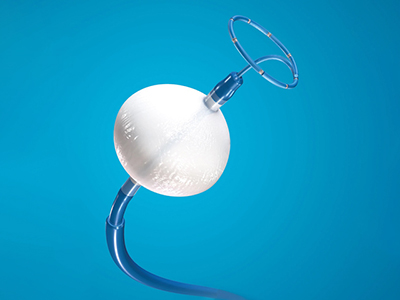
A long-term analysis found the cardiac procedure to be more protective against heart-related disease than conventional medication.
Better long-term outcomes for people in need of treatment for atrial fibrillation may start with a cardiac procedure called cryoballoon ablation (cryoablation), according to a study led by Vancouver Coastal Health Research Institute researcher Dr. Jason Andrade.

Published in the New England Journal of Medicine, Andrade’s study found cryoablation to be more effective at reducing long-term complications from atrial fibrillation than conventional antiarrhythmic medications.
“These results reframe how we view ablation relative to medications in terms of safety,” notes Andrade. “This indicates that, when we manage this chronic and progressive disease with cryoablation earlier, we can realize greater benefits over the long-term.”
Affecting approximately 200,000 Canadians, atrial fibrillation is the most common heart arrhythmia. A chronic and persistent condition, it occurs when electrical signals in the heart become irregular, increasing the risk of blood clots, stroke, heart failure and additional heart-related health complications.
Individuals 55 years of age and older are at greater risk of developing atrial fibrillation. Around six per cent of British Columbians over the age of 65 years are living with the condition, and these figures are expected to increase with B.C.’s aging population.
Many people with atrial fibrillation experience a feeling of having a racing or pounding heart, explains Andrade. Some are unable to go about everyday activities due to fatigue — “their heart is basically running a marathon all the time,” Andrade says.
“While some people with atrial fibrillation may feel fine and have no symptoms, others are completely debilitated by the condition.”
Cryoablation began being used to treat atrial fibrillation around 10 years ago, mostly as a subsequent therapy to antiarrhythmic medications.

Catheter cryoablation involves threading a long tube with a balloon attached to it through the femoral vein in a patient’s leg. Once it is threaded up to the area of the heart where abnormal electrical signals are detected, clinicians inflate the balloon and feed liquid nitrogen into it through the tube, disabling the tissues that trigger the irregular heart rhythm.
Cardiac procedure shows great promise as a first-line intervention
Andrade’s study tracked the health outcomes of 303 patients over a three-year period. Around half of patients underwent catheter cryoablation as an initial therapy and no medication to treat their atrial fibrillation, while the other half received only antiarrhythmic medication.
The research team found that patients in the cryoablation group were less likely to experience subsequent atrial fibrillation episodes, had better improvements in quality of life and were less likely to experience serious adverse events and hospitalizations.
“Medications may treat the symptoms of atrial fibrillation, but not change the disease progression, while cryoablation attacks the root causes of the disease.”
This finding is a game-changer that is already impacting the delivery of care. Andrade began to witness a shift towards the application of cryoablation as a first-line treatment for atrial fibrillation after he published on the subject two years ago.
Watch an animation of the cryoballoon ablation procedure in action:
Reducing the burden of the disease will lead to better outcomes for patients and the health care system, he adds. This could have trickle down effects in terms of significant cost savings to the health care system and care delivery as the population continues to age in the coming decades.
“If we are proactive with treatment, we may be able to prevent disease progression down the line, reducing the incidence of hospitalizations for stroke, heart attack and other atrial fibrillation-related diseases,” says Andrade.


